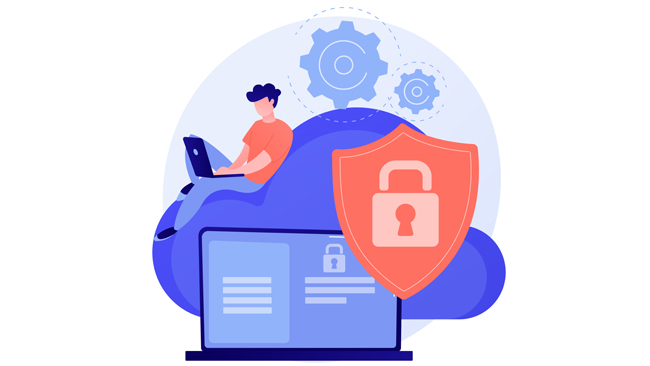In an era where cyber threats are escalating, safeguarding your PC is crucial. This article delves into essential software that fortifies your PC against various digital dangers, ensuring your data remains secure and your online experience safe. You can explore more at geekpedia.com
Antivirus Software
Antivirus software stands as a critical line of defense in the realm of PC security, an indispensable tool in the ever-evolving battle against cyber threats. At its core, antivirus software is designed to detect, prevent, and remove malicious software, commonly known as malware, which includes viruses, worms, and Trojan horses. These malicious entities pose a significant risk to the integrity and safety of personal and corporate data. They can steal sensitive information, corrupt files, and even take control of entire systems.
The functionality of antivirus software has grown more sophisticated over time. Initially, these programs relied heavily on databases of known malware signatures to identify threats. This method, while effective against well-documented malware, struggled to keep pace with the rapid emergence of new threats. Modern antivirus software has evolved to include heuristic analysis methods. These methods enable the program to recognize unknown or modified malware strains by analyzing characteristics and behaviors that are typical of malicious software.
Another vital aspect of modern antivirus solutions is real-time protection. This feature continuously scans the system, checking files, and applications in real-time as they are opened, executed, or modified. This constant vigilance is key in preventing malware from gaining a foothold in the system.
Additionally, most antivirus programs now include automatic updates. As malware developers continually release new and more sophisticated threats, antivirus software must be regularly updated with the latest definitions and algorithms to remain effective.
Firewall Protection
Firewall protection serves as a fundamental element in the architecture of computer security, functioning as a barrier designed to safeguard computers and networks from external threats. Essentially, a firewall is a software or hardware-based system that controls the incoming and outgoing network traffic based on an applied set of security rules. Its primary purpose is to establish a barrier between a trusted internal network and untrusted external networks, such as the Internet, thereby preventing unauthorized access to or from the internal network.
The way a firewall operates is by inspecting data packets that attempt to enter or leave the network. Each packet, a small unit of data, is scrutinized against the firewall’s set of predefined rules. These rules can vary greatly depending on the level of security required and can be as simple as blocking certain traffic from specific locations or as complex as recognizing and blocking certain types of malicious software.
One of the key aspects of firewalls is their ability to distinguish between safe and unsafe traffic. This is achieved through various methods, one of which is packet filtering. Packet filtering involves examining the headers of packets to determine their source and destination, the type of data they carry, and the port they are utilizing.
If a packet doesn’t match the firewall’s policy, it is blocked. Another method is stateful inspection, which not only examines packet headers but also tracks the state of active connections, thereby providing a more dynamic approach to network security.
Firewalls have evolved significantly over time, adapting to the changing landscape of cybersecurity threats. Traditional firewalls, often known as network firewalls, are primarily focused on monitoring traffic between networks. However, with the rise of sophisticated cyber threats and the increasing complexity of network architectures, the functionality of firewalls has expanded.
Modern firewalls, known as next-generation firewalls (NGFWs), go beyond simple packet filtering and connection tracking. They incorporate features such as application-level inspection, intrusion prevention systems, and even identity-based access controls.
Anti-Spyware Software
Anti-Spyware software plays a pivotal role in the digital security landscape, offering a specialized form of protection that is essential in the modern era of interconnected computing. Spyware, a type of malware designed to secretly monitor and collect information from users’ systems, poses a significant threat to both individual privacy and corporate data security.
The primary function of anti-spyware software is to detect and remove spyware infections from a computer system. This is achieved through a combination of real-time protection and scanning. Real-time protection works continuously in the background, monitoring the system for activities typically associated with spyware, such as attempts to modify system settings or install unknown software components.
In addition to real-time protection, anti-spyware programs offer comprehensive scanning capabilities. These scans delve deep into the system, examining files, applications, and even the registry for traces of known spyware. The sophistication of these scans varies among different software, with some providing quick surface-level checks and others offering thorough, in-depth analysis of the system.
A critical aspect of Anti-Spyware software is its ability to stay current with the ever-evolving nature of spyware threats. To this end, most anti-spyware solutions include automatic updates. These updates, often distributed regularly by the software provider, ensure that the anti-spyware program can recognize and protect against the latest spyware variants.
Conclusion Navigating the vast landscape of PC security can be daunting, but equipping yourself with the right tools is essential. Stay vigilant, keep informed, and choose the software that best meets your security needs to maintain a secure and worry-free digital life.



Leave a comment
Have something to say about this article? Add your comment and start the discussion.